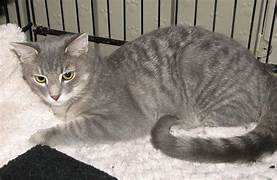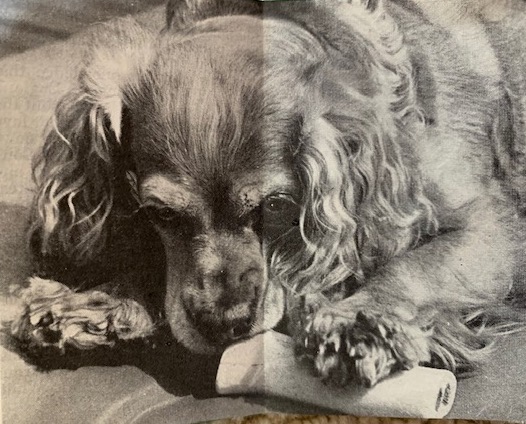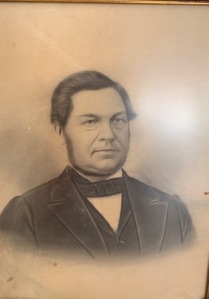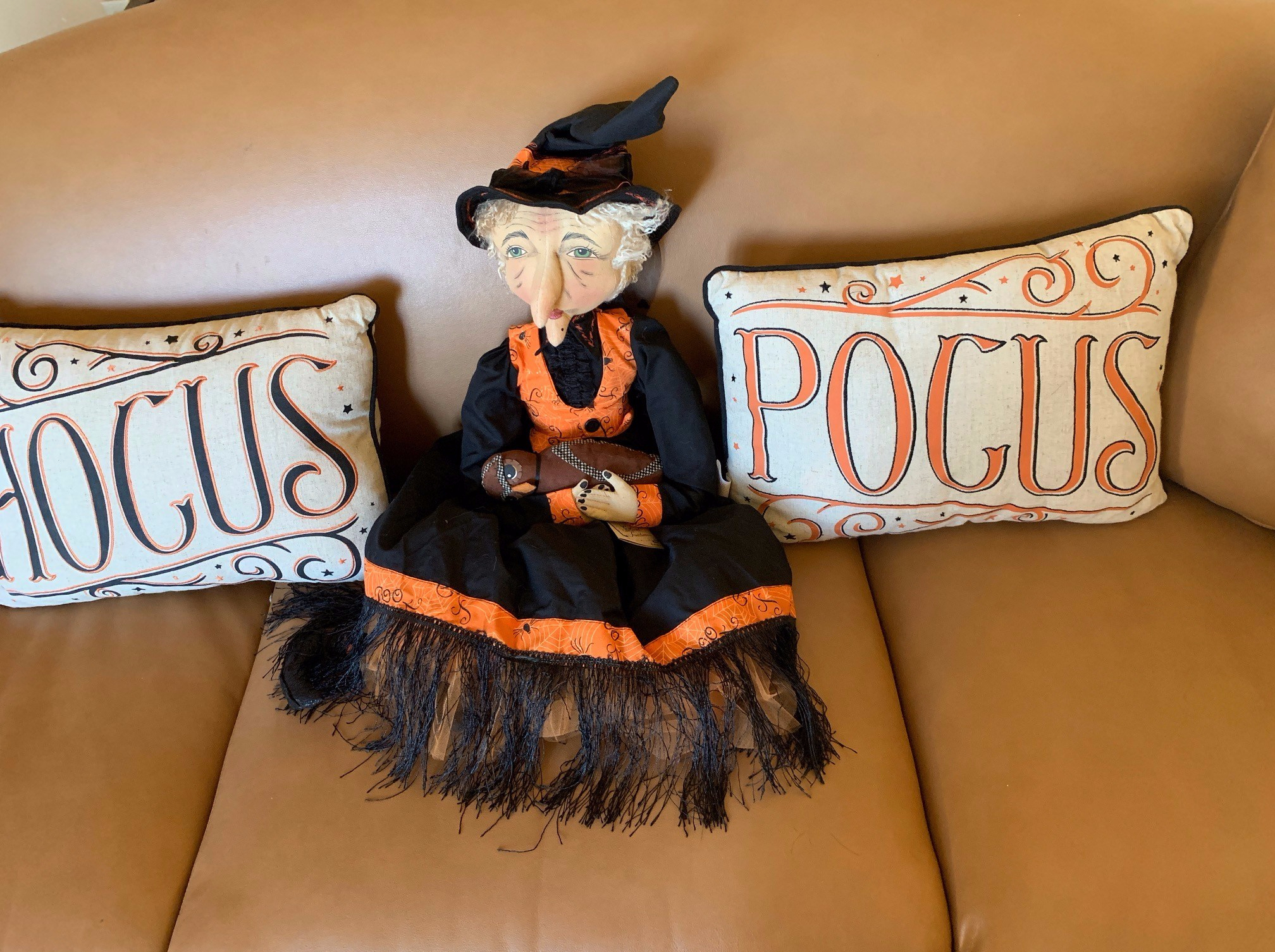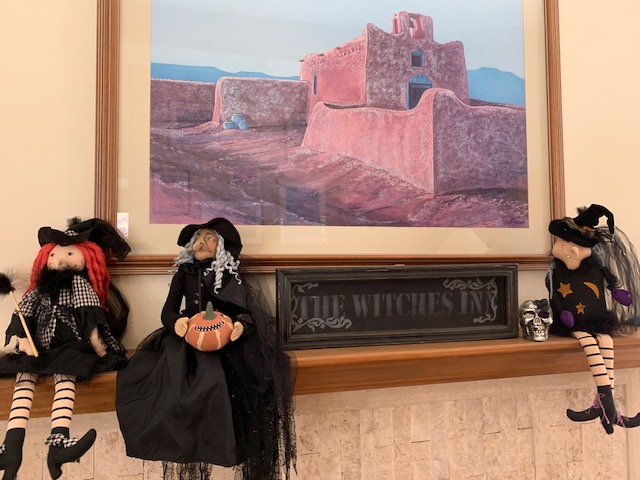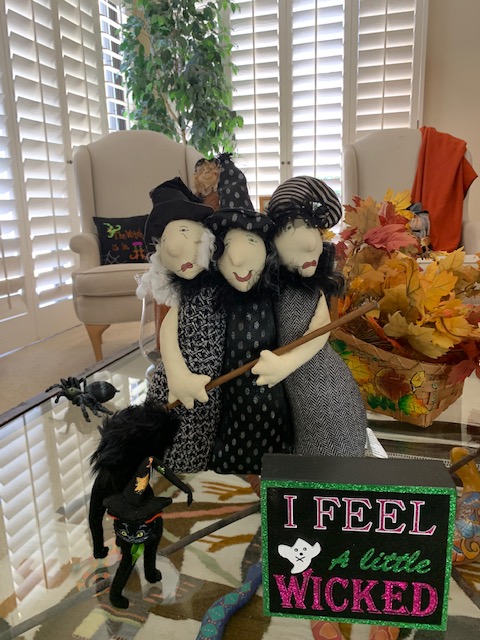It would have been funny, if it weren’t so sad. It was 6 o’clock on a brisk October morning. I was digging a grave at the top of the bank in the backyard of our house. But this was a special grave for Arthur waiting down below in the house, unaware of his fate. I scooped up a few more shovelfuls of sand, deemed the hole deep enough, then stuck the shovel in the ground. As I began my slow descent down the bank to fetch Arthur, I reflected back on his life, which for the most part was tranquil, but also contained drama.
The day of Arthur’s birth was easy to remember. It was our son, Brant’s, eleventh birthday, March 19. The night before, we had ten of his friends over for a slumber party and that day we had heated up the pool so the boys could swim. Arthur was born on a pile of towels, under our bathroom sink. While the boys were swimming in the pool we kept them updated on the births through the bathroom window that looked out over the pool. “ We’re up to three!” we’d shout.
Arthur was the biggest of the litter. Four of the kittens looked like their mother, Midnight, black as her name, including the kink in their tails. Arthur and his sister were the only tabbys and took after their father. We knew who the father was because we were there at the conception. We did not actually see it, but heard the yeowl outside our bedroom window one night. Midnight was a feral cat that Ricki, our daughter, had found earlier that year. Midnight did not adjust to complete domesticity as she did not like to cuddle or be held, but would still rub against your legs and would welcome being petted. We could not keep her inside, and she roamed the neighborhood at will. Midnight had just finished her period of heat, or so we thought, when we let her out that night. Later Tigger, the neighbor’s big tabby, must have picked up her scent and made his play.
We didn’t tell our neighbors of Midnight’s pregnancy, because I had a plan. They were friends and their younger son, Mark, often played with our son though he was a few years older. Tigger, in fact, was more Mark’s cat than anyone’s. Soon after the kittens’ birth I asked my husband, an attorney, to bring home a petition to establish paternity. I filled it out with Tigger listed as the father and Midnight the petitioning mother who claimed he owed child support for fathering the six kittens. I signed it Thomas Feline, attorney, and then gave it to Ricki to deliver to the neighbors. She rang the doorbell and left it on the step. Sure enough, it wasn’t five minutes before Mark came over beaming like a proud papa himself.
Naturally, Ricki wanted to keep all the kittens, but that was not to be. We decided to give Mark first choice if he wanted one. He and his girlfriend came over one day, and of course they picked out the pretty grey tabby. As the weeks passed, Brant and Ricki became more and more attached to the kittens, especially the two tabbys. We finally said, “All right, you may keep one kitten.” Midnight was Ricki’s cat so Brant said he should pick. Since the grey male kitten had already been chosen, he picked the female tabby. At that time Brant was very much interested in knights, castles, and dragons so it was he who dubbed the two favorite kittens King Arthur and Queen Guinevere. As it turned out, Mark and his girlfriend did not take a kitten and both Arthur and Guinevere became ours.
Unfortunately, Midnight disappeared a few months after the kittens were born, and Guienivere six months after that. We searched the neighborhood for months and left notices to ask if anyone saw them, and finally surmised that they had been taken by coyotes, or more likely raccoons, who had been known to be in the area.
So all we had left was Arthur, who unlike his mother, was becoming very domesticated. Ricki carried Arthur everywhere, gave him rides in her wagon, and dressed him in baby clothes. As they both grew older he did learn to assert his independence and decide when and where he would become part of her agenda, but by then, the relationship was cemented. Arthur was Ricki’s cat; he slept at the foot of her bed, endured many big hugs and was the first to be greeted when she came home from school.
When Arthur was three months old we had him neutered to curb his roaming tendencies. We let him out in the daytime, but kept him in at night. He grew into a big lazy cat who lounged around the house, but he would occasionally bring us a dead bird as present from his daytime wanderings. We also had a dog at the time and they got along well after Arthur let Taffy know who was “Boss.”
We moved to a new house when Arthur was four. The house backed up to the open desert and we often found wild animals such as snakes, rabbits and quail in our yard. At night the coyote howls were quite close. We, therefore, made the decision to curb Arthur’s access to the outside and he became an indoor cat. He was not happy about the decision and took it out on our couch and chairs. We bought him a scratching post and covered it with catnip, to lure him to give up his scratching habit. It didn’t work. The side of our couch was in shreds, so we had him declawed.
Our dog Taffy died of cancer, we got another dog that also died, but Arthur endured. One summer my husband, BJ, and I went away for the weekend leaving Ricki, who was home for the summer and preparing for college in the fall. On Saturday night we received a phone call. It was Ricki. “Arthur bit me. I was trying to get the hairballs out of his fur. I’m on my way to the emergency room.”
A few minutes later she called back. “The emergency room at Eisenhower is closed. I have to drive to Desert Hospital in Palm Springs.”
“But that’s half an hour away and it’s ten o’clock at night!” I said.
“Oh, Mom, I’ll be OK. Don’t worry.”
Ricki ended up just fine. The bite barely punctured her skin, but she got an antibiotic shot just in case. Little did we know this was just the beginning of the Arthur saga.
Later that summer my husband attended a judges’ conference at the Hyatt hotel in Dana Point. Since he had a room to himself I went along too. While he was attending classes, I could shop and relax on the beach. We had been there two days when we got a phone call. It was ten o’clock at night and we were in bed. I answered the phone. It was Ricki.
“ I can’t find Arthur.”
“What do you mean, you can’t find him? How did he get out? He couldn’t have gone far.” I said.
“We think he jumped out of the car.”
“Car? What was he doing in the car? Who is ‘we?’
“ Darcy, some other friends and I. We were on our way home from the veterinary hospital in Thousand Palms. We put him in the backseat and stopped to talk to some friends on the way home and he must’ve gotten out.”
“Hospital? Why were you at the hospital?”
When I finally heard the whole story it seems Ricki invited some friends over. One of the boys had a dog. The boy and the dog came in the house, the dog saw Arthur, Arthur ran into our room to get under the bed. Ricki chased after them. When she got into the bedroom she noticed something fuzzy and gray lying on the floor and picked it up. It was Arthur’s tail. Ricki became hysterical. The boy took the tail, ran to the kitchen, and put it in the freezer. The group then proceeded to the vet hospital minus the dog. Unfortunately, the tail could not be attached. Arthur was given antibiotics and pain medication, and what remained of the tail was wrapped in gauze. A legarthic Arthur was placed in the back seat of the car.
“Where do you think Arthur is?” I said.
“I don’t know!” Ricki wailed. “It could be at the hospital. Or near the house where we stopped. We tried to look, but now it’s dark.” She began to cry.
“OK,” I said. “Why don’t I come home tomorrow? We can write up some flyers and I can help you look.”
The next morning I got up and drove back home to Palm Desert to help look for a de-clawed, de-balled, and de-tailed cat who was lost in the desert without water in 112º heat. The first thing I did after I arrived home was print up flyers.
MISSING
LARGE GRAY CAT
VERY SHORT TAIL
NEEDS MEDICAL ATTENTION
PLEASE CALL: 760 346-8888
Ricki and I first went to the neighborhood where her friends lived and posted the flyers then drove to Thousand Palms. The emergency veterinary clinic is located on a side street just down from a busy intersection. If that’s where Arthur was, I hoped he hadn’t gone far. We asked at the clinic and were told no one had reported a missing cat. We then made a wide sweep of the area around the clinic. After looking behind trash cans and the parking lot of the business next door, we focused on the wash on the other side. If he was anywhere, I thought, it would be here. There were tamarisk trees along the wash which made it a cool place to hide. Other beings thought so too. The wash was strewn with discards from the homeless. It gave me a chill to realize we were tramping through what had been a refuge for people who had nowhere to live. We even came upon one camp that looked like it might have still been occupied, but we found no cat.
I was beginning to think it was a hopeless situation. We once had a cat, when I was younger, that we brought to our new home only to discover that it found its way back to where we had left. There are stories of dogs and cats that travel hundreds miles to find their masters. But would Arthur be able to cross busy streets and maybe even the freeway to find us in this heat? I thought.
I stayed that night, and the next morning Ricki convinced me that there was nothing further I could do to help. She and Darci would keep looking and maybe someone would call. So I headed back to the beach. Late that afternoon I got a call. They had found Arthur! They went back to look in the neighborhood where their friends lived. While they were looking around they saw a little boy, and when they told him about a missing cat, he pointed to a bush. Yes, curled up under the bush meowing plaintively was Arthur.
There was one more chapter to this saga, however. On the Friday before we were to leave Dana Point, Ricki called. Arthur had started meowling like he was in pain. Ricki took him to the vet. He had stones in his bladder that needed to be removed. By the time he was through, Arthur’s adventure had cost us over $2,000!
Ricki left that Fall for Chico State and Arthur became our cat. He settled right in, sleeping above my pillow at night which made me have to scrunch down to sleep comfortably. He weighed about 25 pounds now and needed to be on a diet. His favorite place to sit was in front of our bedroom window, which was really a sliding door. From there he had a view of the front yard and the street where he could watch the birds and rabbits. Once in a while a neighbor’s cat came up to the window and they would hiss back and forth at each other.
The second year Ricki was at college Arthur’s health began to fail. He became legarthic, and worst of all, we began to find spots on the rug where he had peed. The vet said he had kidney problems. He hydrated him, but said that he would continue to decline. We could continue to bring him in for treatment every week, but it was only postponing the inevitable. When we called and told Ricki what the vet had said, she wanted to wait and see how he would do. So we waited, and our carpet continued to get soiled. We bought a variety of cleaning products and urine masking solutions, but finally concluded we’d just have to buy new carpet when the time came. Arthur seemed to be better for a while, but then he began to have a wobbly walk, and when he jumped down from a chair he would fall.
I worried about Arthur and every day wondered if, when I came home, I would find him dead. One day driving home when my thoughts were on him, I didn’t realize a signal light had changed and I ran into the back of a car. Both cars were hardly damaged, but we exchanged numbers and insurance information. We had our bumper fixed for $200, but I was surprised to learn that the other driver had submitted a bill for $2,000!
I began to let Arthur outside, where he would crawl under a bush. I had read that when cats were going to die they wanted to seek someplace private, and I figured that is what he needed to do. That week I spoke with Ricki again, and she tearfully agreed the time had come. She had worked in a veterinarian’s office for a few years and still had friends there, so she arranged for me to come in early the next day with Arthur.
Now was that time. I came in from the back yard and got the plastic laundry basket from the service porch and found a beach towel to cover the bottom, then fetched Arthur. He was quiet on the drive down; there was little traffic so we got there early. This was my first time to put an animal down and I was nervous as well as sad. Since I was the only one in the office it went rather quickly. Her friend Jeanie showed me into one of the patient rooms where I sat down, holding and petting Arthur. Afterward, I laid him on the towel and placed the basket in the back seat for the drive home.
At the last minute I decided to bury Arthur wrapped in the beach towel. I placed him in the hole, covered him up, told him what a good cat he was and that we loved him, and headed down the bank into the house. I called Ricki and we both cried a bit before I grabbed my keys and went back to the car for my drive to work.
